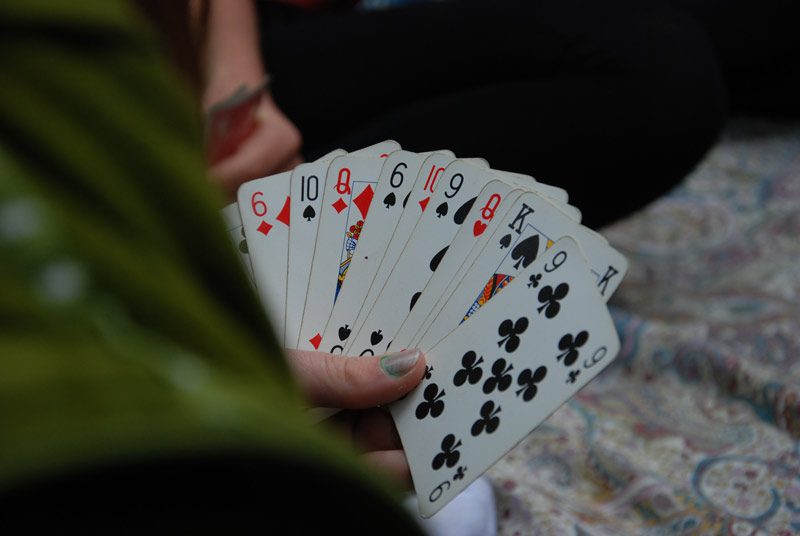We all experience anxiety. That feeling of creeping fear is an integral part of being human. For millennia, it’s alerted us to danger and ultimately kept us alive in the face of predators and other threats.
In the 21st century, city-dwellers are seldom faced with hungry wild animals. Yet, people seem to be experiencing greater and greater levels of anxiety that make daily life a struggle. In these situations, it’s clear that anxiety has overshot its original purpose and isn’t as helpful as intended.
People experience unhealthy levels of anxiety for several different reasons. Anxiety disorders can stem from traumatic experiences, genetic predisposition, or chronic stress. And they don’t discriminate. Anxiety affects everyone, regardless of age, gender, race, or socio-economic background.
Medication, therapy, or a combination of both can help to treat the condition. But dealing with your anxiety day-to-day is still a daunting task. You can’t pop a pill every time your anxiety spikes, so it’s essential to have tools to get you through overwhelming moments.
We’ve put together a list of seven distractions for when anxiety is getting the better of you.
1. The 5 senses exercise
This activity, also known as the 5-4-3-2-1 technique, is quite well-known and effective in drawing your focus away from overwhelming feelings of anxiety.
The aim of this exercise is to engage all your senses and become mindful of the present.
Look around the room and name five items you can see. Next, name four things you can touch; then three sounds you can hear; two things you can smell, and one thing you can taste.
2. Counting games
This distraction technique encourages your brain to perform mental gymnastics, with the aim of allowing you to forget immediate worries.
Many schoolchildren dread math lessons. But when used effectively, number puzzles and games are highly effective in taking your mind off distressing emotions.
Two examples are:
- Count backward in your mind from a certain number (100, 200, 1000) in sevens (or any other number of your choice)
- Add numbers in your head, such as 1 plus 2, plus 3, plus 4.
3. Letter or alphabet games
Just like exercises using numbers, games using letters demand focus and force your mind to direct its attention away from the fear you’re feeling.
One basic technique is to run through the alphabet and name an item beginning with each letter. You can make this game as easy or difficult as you like by setting yourself specific rules. You can try to come up with a specific fruit or vegetable for each letter, or a city, or country.
If your mind is too busy to concentrate, just name any item for each letter until you feel settled.
4. Create your perfect world
This technique is probably a little less intellectually challenging, but it still engages your brain and adjusts your attention.
Using visualization is a well-known coping mechanism for dealing with psychological distress, and there is an infinite number of themes to choose from.
A common method is to create a space in your mind that feels safe and secure.
If you need something a little more demanding, you can get as specific as you want. Fill your imaginary bookshelf with all the books you intend to read. Or take yourself for a mental stroll through your neighborhood, noticing the houses you’re passing on the way.
5. Memorize something
Memorizing poetry probably didn’t make it onto our list of favorite school activities. However, testing your recall is an excellent distraction technique when your mind and heart are racing.
If you have a book to hand, try to memorize a paragraph—or even a single sentence if you’re struggling. This can also work with song lyrics if you’re musically inclined or, for the mathematicians, the digits of Pi. With this, the sky’s the limit… the Guinness World Record for memorizing the Pi sequence is 70000 digits.
If these exercises feel too intellectual, you can engage your visual memory by trying to remember all the items on your desk or the cards in the hand of the last game you played.
6. Words and lists
If you find it too hard to list items alphabetically, just choose a category and try to find as many things as possible that fit into it. This is easier than trying to stick to sequential letters, but you can always take things up a notch by narrowing down your chosen classification.
Start with a list of people’s names, then narrow it down to girls’ or boys’ names. Then, try to list names only containing the letter a.
When you’re overwhelmed by anxiety, it might be even more helpful to concentrate on a theme that evokes pleasant emotions for you. Your favorite activities, favorite foods, or places you dream of visiting are a few ideas.
7. Get creative
There’s no limit on what you can do with your imagination. More structured activities, such as counting backward in sevens or memorizing a poem, are excellent distractions. However, there are no hard and fast rules about what constitutes a mind game or distraction technique.
There are many other mental activities that help to calm anxiety, such as:
- Pretend you’re interviewing your favorite celebrity and come up with 10 interesting questions for them
- Pretend that you’re being interviewed and think of 10 questions you’d love to answer
- Think about your top 5 or 10 favorite movies and try to remember your favorite scene in each one
Whatever exercise you pick, your goal is to distract yourself. If you experience chronic bouts of anxiety, using coping methods like these is key to feeling grounded and in control again.
Author Bio: Donna Jefferson is a writer, editor, and health and wellness enthusiast covering topics on parenting and senior health. Donna leads a fairly active lifestyle and enjoys sweating it out at the gym or going on hikes with friends during her free time.
- Feature photo by Glen Carrie on Unsplash
- Abacus photo by Crissy Jarvis on Unsplash
- Bookshelf photo by Aneta Pawlik on Unsplash
- Playing cards photo by Alessandro Bogliari on Unsplash
- Coloring photo by Customerbox on Unsplash
The opinions and views expressed in any guest blog post do not necessarily reflect those of www.rtor.org or its sponsor, Laurel House, Inc. The author and www.rtor.org have no affiliations with any products or services mentioned in the article or linked to therein. Guest Authors may have affiliations to products mentioned or linked to in their author bios.
Recommended for You
- Mental Health Chatbots: How to Use Them Safely Without Replacing Your Therapist - January 5, 2026
- 3 Tools to Use Anxiety for Growth - January 2, 2026
- Social Anxiety in Early Recovery: Navigating Social Situations Sober - December 29, 2025









